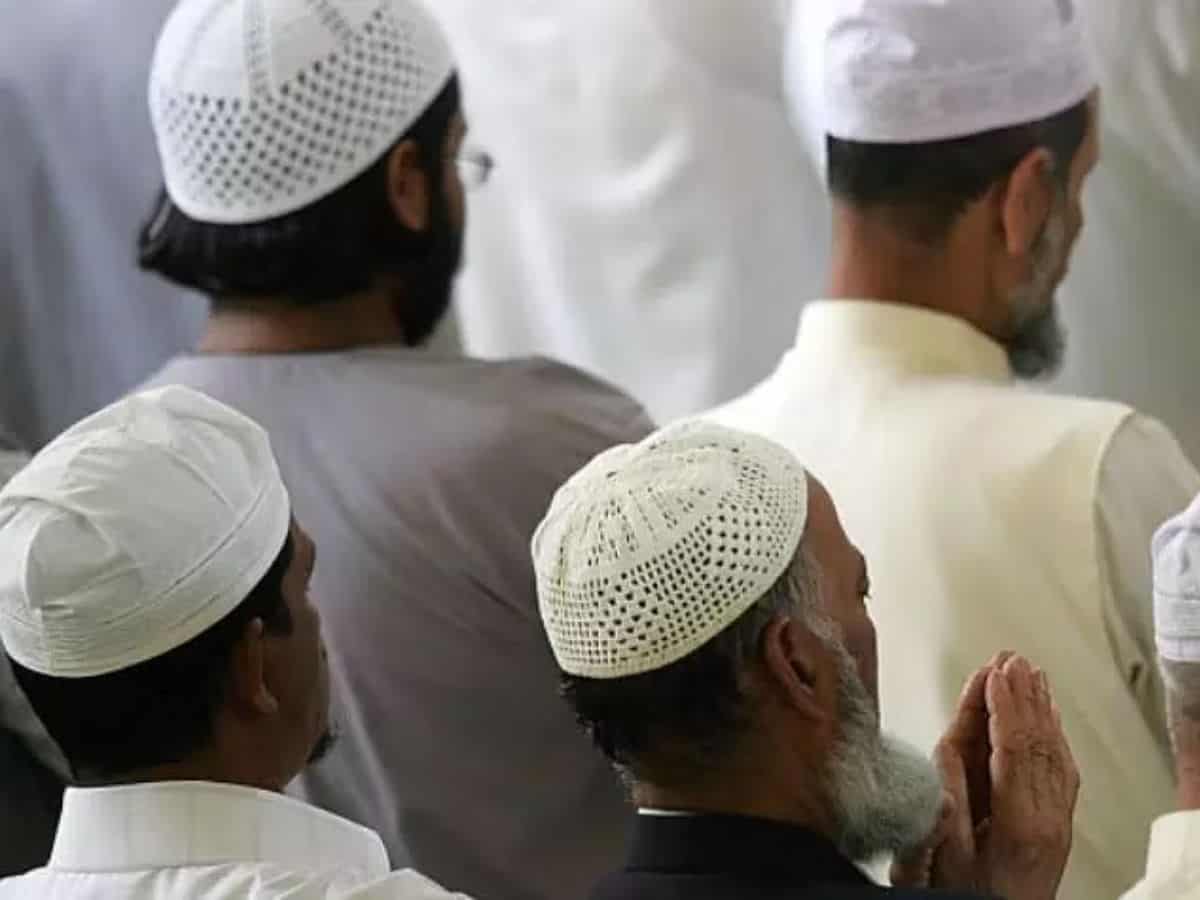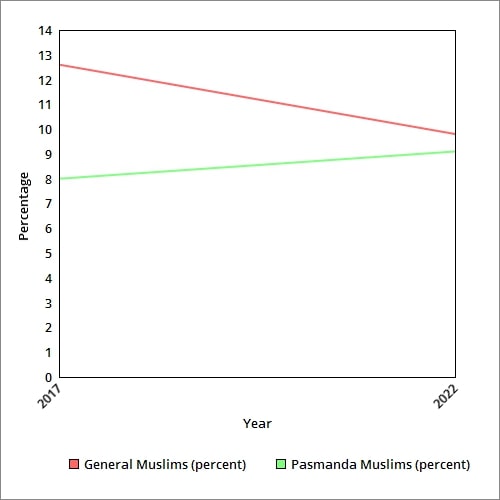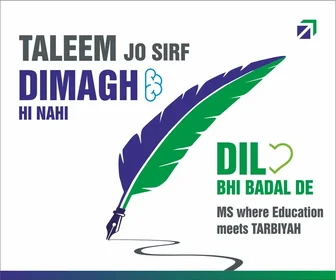
Can Muslims be treated as a homogeneous voting bloc? A survey conducted ahead of the upcoming Lok Sabha polls revealed that the voting behaviors of Pasmanda and other Muslims are fragmented.
As per a report published in the Hindustan Times, the survey, which was conducted on a sample of 2,000 Muslims and 2,000 Hindus in Uttar Pradesh, revealed the voting patterns of the former.
The survey disclosed that in 2012, a small percentage of Muslims voted for BJP candidates. However, by 2017, the percentage increased, with nearly 12.6% of general Muslims and 8% of Pasmanda Muslims supporting the BJP.
In the 2022 state elections, the numbers changed, with 9.8% of general Muslims supporting the BJP, whereas 9.1% of Pasmanda Muslims stood with the Saffron party.

BJP’s attempt
The report quoted surveys by CSDS-Lokniti that claimed that in the 2020 Bihar elections, about 77% of Muslims voted for the Mahagathbandhan, 75% for Trinamool Congress in the 2021 West Bengal elections, and 79% for the Samajwadi Party in the 2022 Uttar Pradesh elections.
In 2022, Prime Minister Narendra Modi urged BJP workers to reach out to Pasmanda Muslims, triggering reactions from various corners. One reaction was from Hyderabad MP Asaduddin Owaisi, who said that they have become victims of vigilante violence under the BJP government.
Even in the upcoming Lok Sabha polls, Pasmanda Muslims are likely to play a significant role.
Who are Pasmanda Muslims?
As per the survey, Muslims are divided into three castes: Ashraf, Ajlaf, and Arzal.
Since the 1990s, Ajlaf and Arzal, collectively known as Pasmanda Muslims, have been mobilizing against Ashraf’s dominance in politics. One mobilizing force is the AIPMM.
Although the survey claimed that in Lok Sabha polls, Muslims are unlikely to vote based on caste entirely, it predicted that sub-identities will have an impact not only on campaigning but also on voting behavior.

